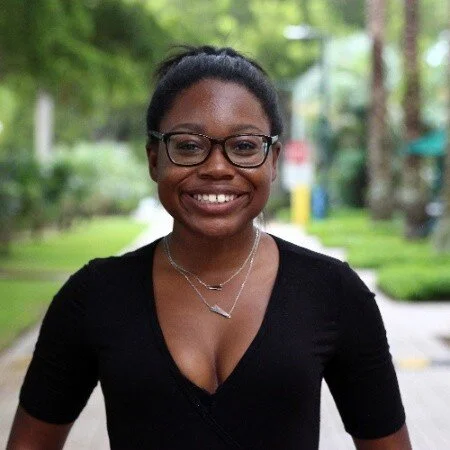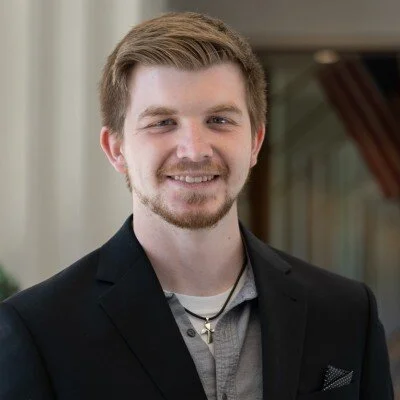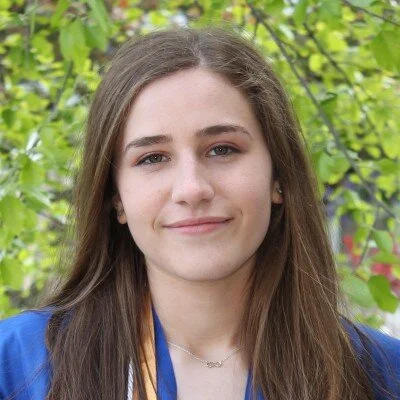“Mizzou” journalists’ playbook builds on NJ Sustainability News Collaborative
Higher education student research team produced a guide to creating a sustainability news collaborative in the Midwest. The “playbook” is a research-based project to facilitate the implementation of a midwestern Sustainability Reporting Hub. In the guide, you’ll find resources that point to invested stakeholders and environmental issues in Missouri that will get any sustainability reporting hub up and running.
The guide is a product of the University of Missouri School Reynolds Journalism Institute capstone project of senior students: Tatyana Monnay, Rachel Behrndt, Abby Orf, Lianna Kowalke and Matthew Unthank.
The Playbook
CivicStory’s New Jersey Sustainability Reporting Project offers an advantageous model for donors, newsrooms and fellows. Their financial model, and newsroom outreach has formed a foundation for a Sustainability Reporting Hub that has notably increased sustainability reporting in New Jersey. Reynolds Journalism Institute research has resulted in adjustments to determining audience interest, newsroom buy-in and retention based on the foundational fellowship in New Jersey. Through these adjustments, we will increase retention and sustainability compared to the New Jersey Sustainability Hub.
AUDIENCE INTEREST
Audience interest can be difficult to assess, but we have devised a simple plan to make a molehill out of that mountain! The initial step is to create a survey. Here is a template we created so you don’t have to: Audience Interest Survey.
We chose to first have the participant rate their internet access since the hub will be digital because if the participant is in an internet dessert, they are not likely to be a target audience of the hub. After that, we wanted to know how they rank their own interest in environmental topics. We also gathered data about viewing habits and platform preferences in order to guide newsrooms in the kind of content that the target audience engages with the most. Analyzing demographic and education data will also support newsrooms in making effective content by understanding the needs and background of the target audience. Finally, we quantified interest in general topics and real environmental headlines in the state to create a news judgement for editors and reporters.
NEWSROOM BUY-IN AND FELLOW PARTICIPATION
Getting newsroom buy-in early in your process is essential to the ultimate success of your Hub. Editorial integrity and pay are the biggest concerns you should address in your pitch. Your hub should not attempt to influence editorial control over content fellows create. Additionally, remember that most fellows will be working on another beat while also creating content for your Hub. Assure them that any stipend will go directly to fellows and be clear on when the fellow should receive the stipend and method of payment. It is also important to consider the geographical constraints of the state you are creating the Hub in - it is unrealistic to ask a reporter at a newsroom in southwest Missouri to cover a story in northeast Missouri in person.
Once you have your newsrooms and fellows participating in the Hub, it’s important that there is some structure built within the system that encourages the fellows to collaborate and cultivate solution-focused story ideas. There should be easy ways for the fellows to reach out to each other outside of group activities or leadership supervision. A Slack channel and Facebook cohort group that includes past and present fellows is a relatively cheap option.
DONATION ACQUISITION
To make an organization like this viable, there must be financial backing. Intuitively, it is clear what organizations may be interested in supporting an enterprise like Sustainability Reporting Hub. Organizations with interests in:
Environmentalism
Agriculture
Resource Management
Another important element of our donor pool is the number of highly local, sustainability-focused organizations. That is important because we are pitching an organization that invests in communities in Missouri through local news outlets. We can look to the original Sustainability Reporting Hub’s breakdown of donors to see a loose representation of how a variety of different types of donors may come together to form a complete funding source.
We’ve identified several organizations in Missouri who might be interested in investing in a midwest-based Sustainability Reporting Hub. These organizations have an interest in the environment and sustainability. We can assume that similar organizations exist outside of the state and could be used to replicate results.
ESTABLISHING THE REPORTING HUB
Some barriers to success in establishing a Sustainability Reporting Hub include:
Maintaining the Reporting Hub and ensuring continued coverage
Forming relationships with newsrooms
Incentivizing fellows with opportunities for growth that enriches reporting
To address those barriers - we assessed audience interest and met with past fellows to come up with a set of recommendations to implement the Sustainability Reporting Hub here in Missouri and around the country.
ENCOURAGE SUSTAINABILITY
To encourage fellows and newsrooms to return to the fellowship and continue reporting for the Sustainability Reporting Hub, we recommend creating an incentive program.
An example of this could be offering a small raise every time a fellow/newsroom/freelancer re-signs with the Hub. For example, if the initial contract was $4,000, a re-signer would receive $4,200
Another barrier to newsrooms re-signing is the inflexibility of assigning one reporter to a single beat. In smaller newsrooms, it’s rare that a reporter would be able to devote all their time to one subject. As a result, the program became too hard to keep up with and newsrooms may elect not to re-sign. To address this problem, we recommend allowing more flexibility for newsrooms to meet their quota for sustainability-focused reporting. That means allowing other journalists in a newsroom to take up a story if another reporter must be assigned to more pressing news.
These additions, along with the existing safeguards in place at the New Jersey Sustainability Reporting Hub will encourage newsrooms and journalists to maintain their commitment to sustainability reporting. Those include complete editorial independence.
A competitive stipend that allows the reporting to have financial backing– this stipend will be based upon costs of living in the place the fellowship implementation
NEWSROOM RELATIONSHIPS
Transparency is the key word in newsroom relationship building. In the current model, reporters produce content that is edited and published by editors in the newsroom and then distributed through the publication’s channels, along with the Sustainability Reporting Hub’s website – paywall free.
The benefits of this model for newsrooms are clear, they get compensated for producing more stories and the stories get fed into a website that will hopefully drive more traffic to their publication.
For this symbiotic relationship to exist there has to be transparency between the Hub, Journalists, and Editors. This includes knowing where the stipend is intended to be distributed, that gives deference to the priorities of the fellow.
One way to improve communication and transparency is having a designated liaison to communicate between the Sustainability Reporting Hub and the journalist/newsrooms. This way, any concerns can be addressed through the same channel, by the same person.
INCENTIVIZING FELLOWS
The goal of the Sustainability Reporting Hub is to create more opportunities for in-depth reporting about sustainability and encourage journalists to become more and more knowledgeable about sustainability reporting. A huge part of this aim is to create opportunities for collaboration and learning.
To ensure fellows have opportunities to collaborate – we recommend regular events where fellows can hear from sustainability experts and the creation of a forum where fellows can discuss and collaborate. This will not only allow fellows more support – it will also foster creativity and collaboration.
Overall, the New Jersey Sustainability Reporting Hub offered a foundational fellowship that creates an advantageous relationship for journalists, donors and newsrooms. With a mind towards editorial independence and transparency that model can be extended to better achieve the aims and goals of the fellowship.






